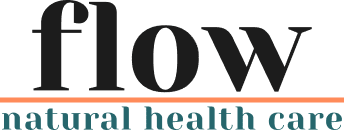By Lenka Dresselhaus, Massage Therapist & Nutritional Therapy Practitioner
First of all, I would like to thank everyone that participated in the zinc taste test at the Clackamas County Employee Health Fair. What a great group of people you are!
I know that many of you entered the drawing for a free 1 hour massage, and I am happy to announce the two winners–JoAnna H. and Barb O.! They were randomly drawn by my 8 year old assistant, who followed strict protocol (not peeking while reaching into the jar of paper slips for the 2 winners) 🙂
For the rest of you, I’d like to offer you 25% off your first massage with me, Lenka, at Flow Natural Health Care. We are located in Milwaukie, just down the street from Bob’s Red Mill on International Way & 40th. Always trying to make massage more convenient for my clients, I now offer late afternoon and evening appointments on Tuesdays and Thursdays! Scheduling is easy: online at www.flownaturalhealthcare.com or call Jessica at 503-974-9283.
For more information on massage & nutritional therapy: www.lenkadresselhaus.com/
Why is zinc so important for good health?
Zinc deficiency is fairly common these days, due to our food being grown in depleted soil, as well as our high intake of processed foods. Zinc has many roles in the body, including:
- Helping to regulate blood sugar (protects against diabetes)
- Required for a healthy reproductive system (especially men’s fertility, testosterone production & prostate health)
- Necessary for proper levels of stomach acid & enzymes (improves digestion)
- Essential in maintaining flexibility of arterial walls (supports healthy blood pressure)
- As a calming neurotransmitter in the nervous system
- As the main anti-inflammatory mineral
- Detoxification (helping the liver process alcohol, toxins & chemicals)
- Normal cell growth & replication of DNA
- Needed for healthy skin, bones, muscles, hair & nails
- Speeds healing time after surgery, burns or wounds
- Supports the immune system so it can fight colds, flus & other infections
- Helpful in allergies & environmental sensitivities
- Necessary for normal sense of taste & smell
- For healthy vision, acting as an antioxidant on structures of the eyes
- Important alkaline mineral, for proper acid-base balance
- Needed to make most hormones
How do I get more zinc?
With my nutrition clients, I may use a high quality zinc supplement if needed, while following certain guidelines & testing regularly for sufficiency. Ideally, getting zinc from food sources is the best way to go, since the body recognizes these whole food compounds and knows how to balance them with supporting nutrients.
Here is a list of zinc-rich foods to include in your diet on a regular basis–they also happen to be nutrient-dense foods (even better!).
The best absorbed are from animal sources. If you are a vegetarian or vegan, it will take a bit more work to ensure you get the minimum amount of 15 mg/day.
- oysters
- beef, lamb, pork
- liver
- pumpkin seeds, pecans & Brazil nuts*
- pastured eggs
- fish
- poultry
- whole grains*
*=nuts, seeds & grains should be properly prepared (soaked and/or sprouted to remove the mineral-binding phytic acid compounds). For more information on this: http://www.thenourishinggourmet.com/2008/07/soaking-nuts.htmland http://thenourishinghome.com/2012/03/how-to-soak-grains-for-optimal-nutrition/.
Thanks for reading! I hope you found this information useful.
Lenka 🙂
I’d love it if you joined me on my FB page, where you’ll find more nutrition tips, recipes & resources: www.facebook.com/RestorativeNutritionNW
Wondering if Nutritional Therapy may be right for you or just want to learn more? Here’s where to go:
